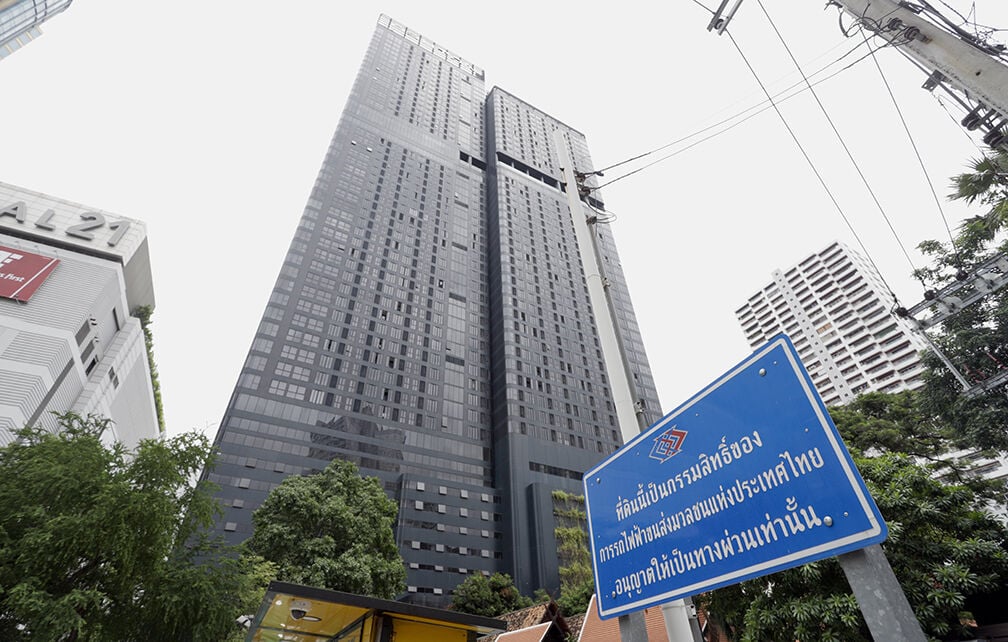Ashton Asoke condo in Bangkok faces legal issues

The Ashton Asoke condominium project, worth 6 billion baht (US$168 million), in Bangkok’s Watthana district is facing a serious threat of legal action if a solution isn’t reached within the next three months, a court official has stated. The dispute stems from a Supreme Administrative Court ruling last July that cancelled the building permit for the property due to the inadequate width of the main entrance.
The construction permit for the fully completed condominium project was deemed illegally issued, rendering it invalid. The main entrance of the condominium, which opens onto Asoke Road, partially belongs to the Mass Rapid Transit Authority (MRTA). This land was taken over by the MRTA to build an entrance to an underground railway station, situated at the threshold of the project.
Prawit Boonthiem, who presides over the tort and other liabilities section of the Supreme Administrative Court, indicated yesterday that the Bangkok Metropolitan Administration (BMA), Ananda MF Asia Asoke Co, and the MRTA have a three-month deadline to resolve the matter in accordance with the Building Control Act. If the involved agencies do not meet the deadline, the BMA must implement the act, which mandates the building’s demolition. The stipulated timeframe for the demolition is 90 days, according to Prawit.
Wisanu Subsompon, Deputy Governor of Bangkok, is confident that a resolution can be achieved within the given three months. The developer has been advised to reapply for a construction permit without the prerequisite of tearing down the existing building, reported Bangkok Post. In addition, a committee has been established by the Transport Ministry to set guidelines that will assist the MRTA in addressing the land expropriation issue, Wisanu added.
In related news, the fate of Ashton Asoke condominium was uncertain as the Bangkok Metropolitan Administration interpreted key sections of the Buildings Control Act. Despite efforts to rectify violations, the Supreme Administrative Court’s decision ultimately led to its demolition.
Latest Thailand News
Follow The Thaiger on Google News:
























